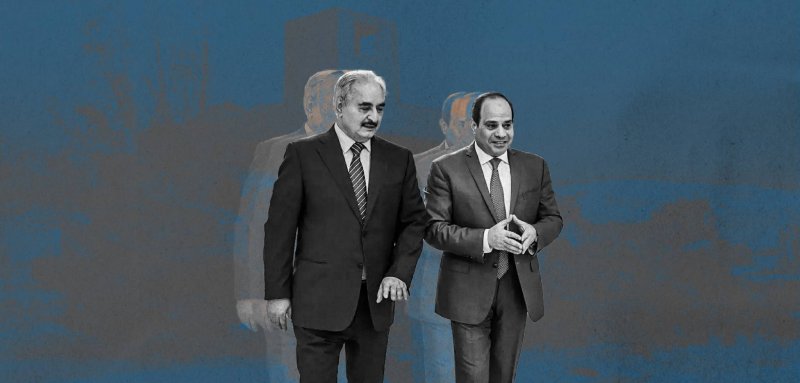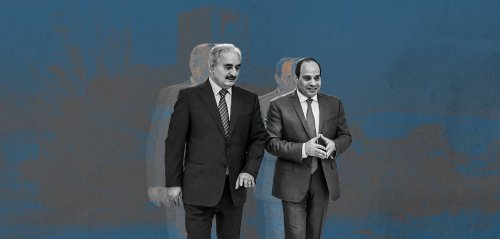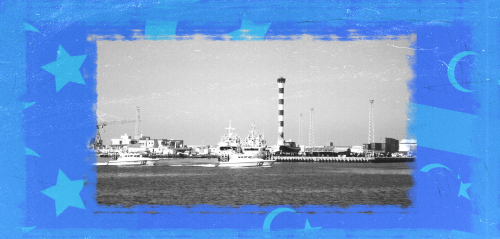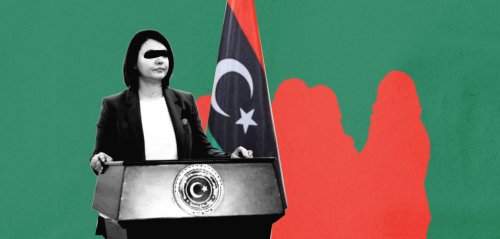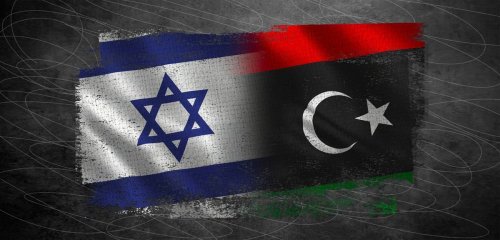Facing the wrath of nature is something no one can control, but when nature's fury collides with negligence on the one hand and the iron fist of authority and violence on the other, the situation becomes untenable.. Derna, once a vibrant city, now languishes in distress.
An alliance of oppression and nature against Derna
This union of oppression and nature against Derna is reminiscent of a local saying, "If we had known what we had known, Derna, we would not have told them about you, Derna.." This is how the people of Derna once celebrated their beloved city, which was suddenly betrayed by the Derna Valley dam one fateful night.
What exacerbates this dire situation is that the city has been besieged and cut off from the world since September 11th of this year, with inhabitants now facing a calamity that extends beyond the wrath of nature.
Following a protest on September 18th, organized by the city's residents to voice their grievances and demand accountability for those responsible for the neglect and corruption that led to the tragedy that befell the city, residents awoke the next morning to discover a substantial number of the region's youth had disappeared. They had been apprehended in a sweeping crackdown by security forces aligned with Field Marshal Khalifa Haftar. This was a preemptive response to the demands raised during the protest. The city found itself surrounded and cordoned off, with the authorities clamping down on its residents. The voices expressing their suffering from within the city started to be silenced, in an attempt to manage a catastrophe that had resulted from nature, and which the authorities were ill-equipped to address.
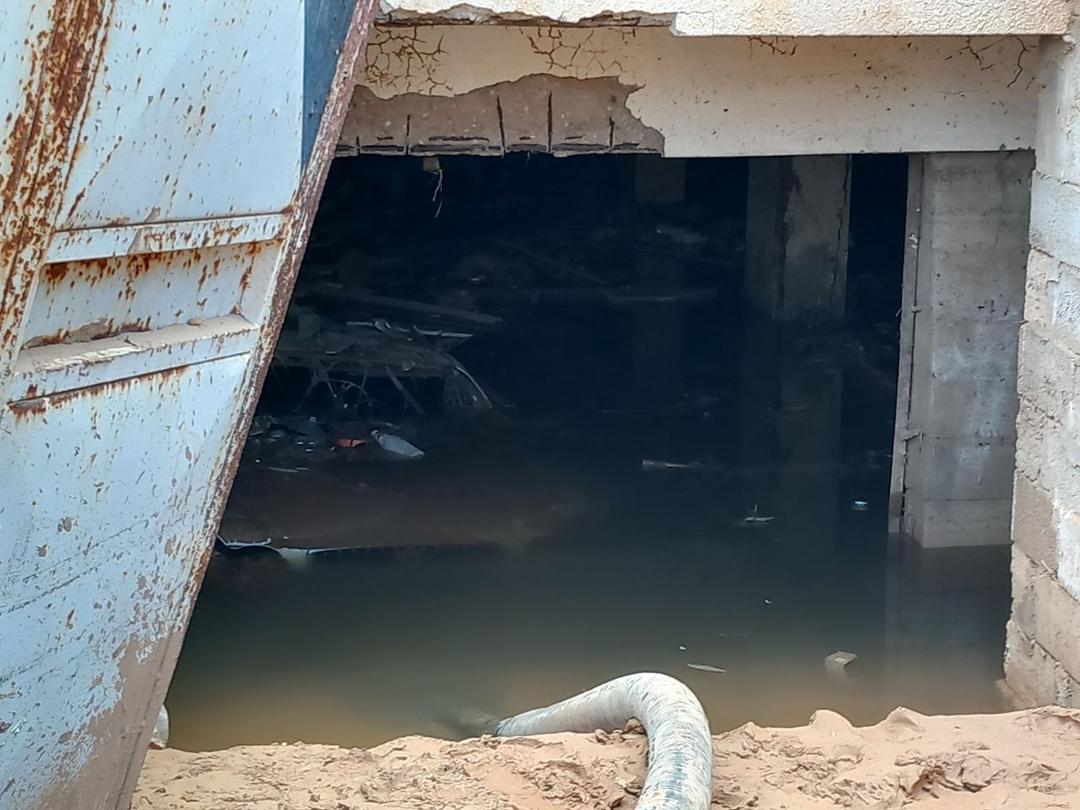 (Photography by Tabrah Marajeh)
(Photography by Tabrah Marajeh)
Is Storm Daniel alone enough, or is there more torment yet to come?
At three in the morning, the blackout began. It gradually severed the city's communications, commencing with the complete shutdown of internet services, followed by the suspension of telephone communications that had been restored to the city three days after the calamity.
The responsible authorities presented inexplicable justifications, claiming that the disconnection was due to damage to one of the connection cables during the rescue operations.
However, the explanations provided by the Dbeibeh government failed to persuade the people of Derna. They argue that what transpired is nothing short of collusion by the Dbeibeh government in an attempt to help its men conceal the crimes of negligence and corruption that culminated in the city's devastation.
"The question here is, how can a prime minister appointed by the parliament engage in discussions with Egyptian corporations regarding reconstruction contracts, while our people are still recovering the bodies and remains of their loved ones?!"
Voices emanating from Derna
A total blackout lasted for 48 hours, further isolating the city from the outside world. Simultaneously, efforts to evacuate the press from within Derna commenced, and the entry and exit of vehicles to and from the city were strictly prohibited.
Raseef22 had the opportunity to speak with one of the young civilians who participated in the protest. He shared, "Derna is not just grappling with death; fear has gripped us, and voices are being stifled. When we awoke in the morning, we discovered that a significant number of the young men who had joined us in the protest had been arrested. They were taken from their homes and their families without any explanation. These young men, who now find themselves behind bars, are among the finest youth of Derna; they were the ones who stood up against ISIS during Haftar's rule, along with those who supported him."
Another young protester picks up the conversation and proceeds to analyze the unfolding scene for Raseef22. He remarked, "Derna has remained inconspicuous on the global decision-making radar since 2011. Today, there's a rush to stifle our voices and thwart our calls for justice on behalf of the blood of our people." He continued, "Regrettably, the entire world has let us down, with everyone preoccupied by their own interests and ambitions."
In our attempt to engage with the families of some of the detained youths, including Riyad Al-Hamr, Mahand Al-Dibani, and Taha Abu Bayda, we encountered a unanimous refusal to comment or discuss the details of their arrests. Their fear was palpable, rooted in the uncertainty surrounding the whereabouts of their sons and the charges leveled against them, as of the moment this report was written.
Mosques in the service of the regime
Meanwhile, beyond the realm of security and arrest policies, another concerning development has taken hold in Derna. Numerous religious pulpits have been co-opted into a questionable narrative.
Zainab, a housewife in Derna, recounted to Raseef22, "Last Friday, we were surprised by the call to prayer's loudspeakers relaying the Friday sermon that centered on the importance of staying home and refraining from participating in any form of protest."
Another eyewitness shared, "I attended prayers at the Azuz Berqa Mosque, and during the sermon, the mosque's preacher talked throughout about the wisdom of patience and prayer 'alone' as the means to confront crises and challenges. It became evident to all worshippers that the preacher was cautioning us, in the name of religion, against engaging in protests or organizing demonstrations in the city's streets."
Amidst these developments, questions loom regarding the hidden motives behind the Egyptian army's entry into Derna and its subsequent control over the city.
Are there hidden reasons behind the entry of the Egyptian army into Derna and its control over it?
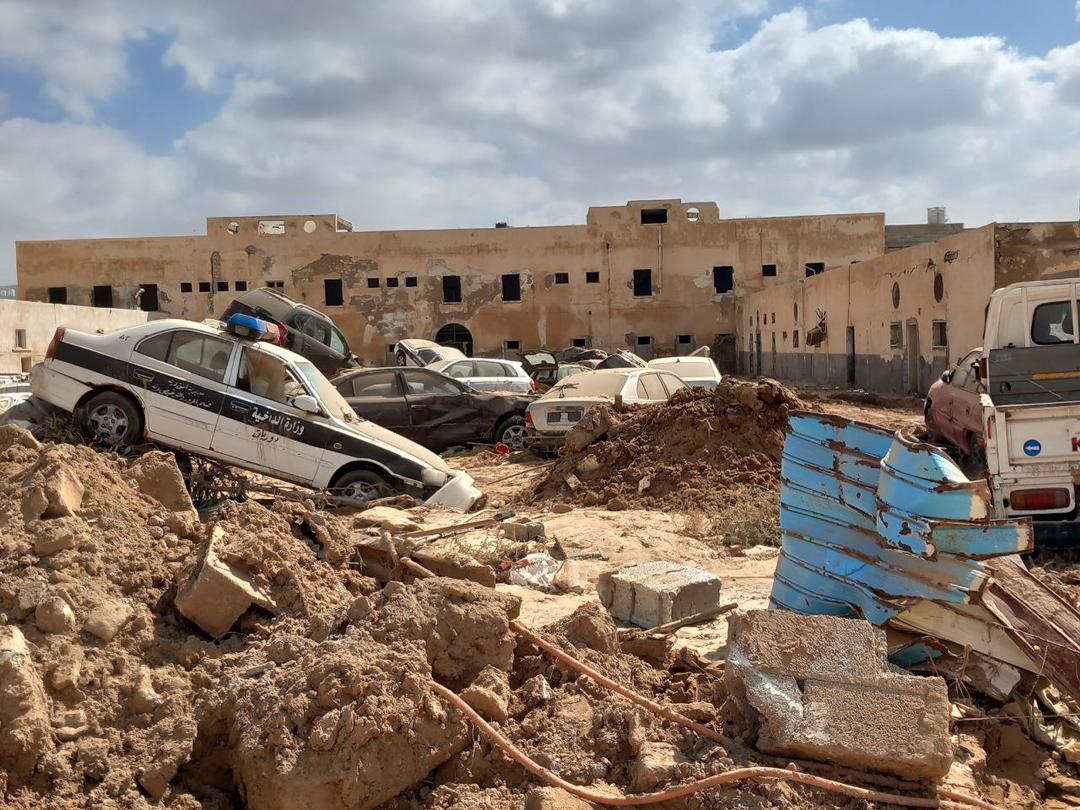 (Photography by Tabrah Marajeh)
(Photography by Tabrah Marajeh)
The Egyptian army takes over Derna
On the sidelines of the scene – and perhaps at the very heart of it – stands the Egyptian army, complete with tanks and soldiers, as various concerns and rumors swirl among the people of Derna.
These anxieties remain shrouded in uncertainty, even though they contain elements integral to the unfolding narrative, even if their interpretations vary. All this comes after the Egyptian army stationed itself in Derna in the form of shelters and camps within Derna.
Asaad, a 43-year-old resident, expressed his apprehensions about something beyond humanitarian assistance, telling Raseef22, "The Egyptian army was the first to arrive, and we appreciate their support. However, what troubles us is what lies beneath the surface of these actions."
As Asaad continued, he raised a kew question, "How can a prime minister appointed by the parliament engage in discussions with Egyptian corporations regarding reconstruction contracts, while our people are still grappling with the painful task of recovering the bodies and remains of their loved ones?!"
He inquires, "Why were all the journalists and foreign press forcibly removed from the city? And why are they pressuring us to leave the city?"
Asaad's questions aren't the only ones; rather, they echo the widespread concerns about the far-reaching influence of the Egyptian military in the city.
In the same vein, a young city resident voices his thoughts, "The Egyptian army is the sole entity that entered our city. Even today, after more than two weeks, they remain stationed here, moving about freely and with ease. Their actions suggest they are preparing for demolitions of buildings and homes. If this doesn't signify something, then it's evident from the statements of higher authorities that they've given them the green light. 'We wouldn't relinquish our city or a single inch of this land, even if it meant we all meet our end on its soil. And if the inept, corrupt, and rogue government wishes to let someone live on our land, they'll have to end the lives of the rest of us first.'"
These concerns, though not definitively confirmed as of yet, intensify with the passage of time and the persistent information blackout. There's speculation that Derna may be offered as a gift or bargaining chip to Egypt, particularly given Egypt's current political volatility, which may necessitate swift achievements and quick-win settlements.
"Why were all the journalists and foreign press forcibly removed from the city?
Where will the rejection of an international investigation lead?
Many voices from governmental bodies, including parliament and both eastern and western governments, vehemently oppose any proposals for an international inquiry. They affirm that the Libyan Prosecutor's Office and the judiciary will uphold the highest standards of transparency and impartiality in this matter. One local, who lost two sons in the tragedy, dismisses the government's investigation as a "sedative", remarking to Raseef22, "There's no such thing as the public prosecutor achieving justice and holding them accountable. That man will do nothing but cover up their crimes, and 'they will just dose us with sedatives until we forget'."
The man goes on, "Unfortunately, we lack trust in their investigations and their integrity. Our demands are crystal clear: the international community must take on the urgent and comprehensive responsibility of holding everyone in the upper echelons of power accountable." He concludes, "We don't want them to bring us scapegoats. They all need to be held accountable."
Despondency hangs heavy over the city's inhabitants who no longer know what fate awaits them. Caught between warring governments driven by financial interests, a military rule enforcing its dominance, and the looming prospect of surrendering the city to Egypt, they find themselves in a dire predicament. In the words of one of the city's elders, "We may have evaded death, but what awaits us now is a slow and agonizing demise."
Raseef22 is a not for profit entity. Our focus is on quality journalism. Every contribution to the NasRaseef membership goes directly towards journalism production. We stand independent, not accepting corporate sponsorships, sponsored content or political funding.
Support our mission to keep Raseef22 available to all readers by clicking here!
Interested in writing with us? Check our pitch process here!
